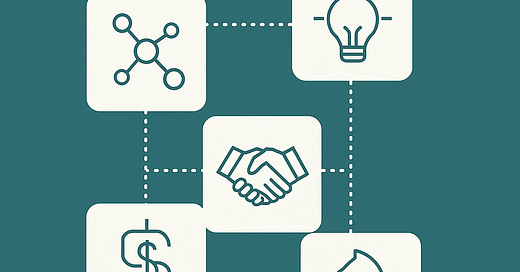Proprietary Deal Flow: The Quiet Engine of Top-Tier Venture Funds
In venture, the best deals don’t knock, they whisper. Here's how top funds source them before anyone else knows they exist.
Dear Readers,
Welcome to the latest edition of the HealthVC newsletter.
After four years of decoding the language of venture capital, HealthVC is entering its next chapter.
We're no longer just interpreting the market; we're building the infrastructure for those actively shaping it.
The new HealthVC is designed for founders who are raising serious capital …



